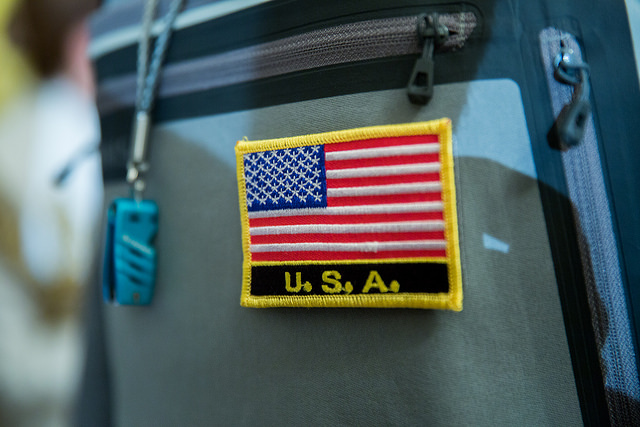Made in America: Manufacturing Onshore In The US Still Makes Sense

Places like China, Taiwan, or India may seem very attractive with their low costs of manufacturing thanks to low cost of labor. It can seem easy to send your product to be manufactured in another country and reap the rewards of higher profit margins. However, there are several reasons for manufacturing onshore– or, manufacturing at home.
U.S. Facilities are Incredibly Clean
The United States have many rules and regulations placed on their factories. Factories located in the U.S. have cleaned up their act in recent years and are getting cleaner every day. In comparison, Chinese factories and factories around the world are not subject to the same stringent requirements as their American counterparts. If you care about conservation at all, remember that Chinese factories spew smog into the air and dump toxic wastes into the rivers.
Prices of Manufacturing in China are Rising
China isn’t as cheap as it used to be. Recent regulations passed in China have led to an increase in wages, so Chinese business owners are beginning to hire undocumented workers from Myanmar and Vietnam to work in factories, resulting in a dip in profits for American companies. Companies such as Apple and Motorola are slowly bringing their manufacturing needs back over from China to factories in Texas. Apple is producing its new line of Macs in America, and Motorola is producing their Moto X smartphone, a phone that is produced after purchase for a totally custom experience, in Texas as well.
Increased Reaction Time
When you’re manufacturing onshore, you don’t have to wait for your product to be shipped overseas and to clear customs– it’s already in the US. Delivery can be achieved in just a couple of days, and time matters when dealing with customer satisfaction. With onshore manufacturing and today’s technology, within a matter of hours a product can be shipped out, adding up to significant savings of time and money.
Simpler Logistics for Supply Chain Management
Onshore manufacturing means a simpler supply chain management process. You no longer have to deal with custom brokers and understanding tariff classifications and acronyms, and you don’t have to fill out forms to begin the importation process. This can also add up to significant savings of time and money.
Market Responsiveness
With new technological advances and an ever-evolving market, you might have to make a product change quickly in order to remain relevant. When you manufacture in the US, you can generate small test batches to gauge how responsive the market is towards and design changes rather than developing a full batch of product that potentially may not sell.
A Skilled Workforce
According to Boston Consulting Group’s (BCG) third annual “Made in America” report, out of those who re-shored, 74 percent found a more highly-skilled workforce with expertise in advanced manufacturing equipment and technologies. With the workforce becoming more skilled, technology is also changing quickly and costs are going down. From the same BCG report, 71 percent of manufacturers believe that advanced manufacturing technologies will improve the economics of localized products. With declining automation costs, regionalized manufacturing is becoming a much more cost-effective option.
Consumers Want To See The “Made in America” Sticker
There’s been a recent push to buy products that have the “Made in America” sticker signifying they are American-made. In 2013, Consumer Reports found that 78 percent of Americans would prefer the American-made product versus an overseas-made product. This same survey found that Americans would be willing to pay up to 20 percent more for a product if it was Made in America. There are several sites online where you can advertise and sell your products that promote only American-made products.
If you have a new product or idea and would like to explore the possibility of partnering with Alotech’s resources for inventors to bring it to the marketplace, contact us today.
